
How to Handle Shopify Returns: Everything You Need to Know
Handling returns and refunds manually in Shopify takes time— is this the best it can get? Fortunately, not! Keep reading to find out how to improve the return process for your Shopify store.
Boost customer experience and reduce support tickets
Realtime order and shipment tracking
Proactive order and shipping notifications
Predictive pre-purchase estimated delivery dates
Self-Serivce branded order tracking
Effortless experience delivered
Make returns profitable and delight customers
Flexibility to define any return destinations & conditions
Simplify returns for your customers and team
Incentivize exchanges over returns
Returns management made easy for your team
Understand why your customers are returning
Unify the online and the in-store experience
Hassle-free pickup experience for customers
In-Store Dashboard to keep operations streamlined
In-Store and Online orders unified
Drive foot-traffic to your stores
Boost customer experience and reduce support tickets
Realtime order and shipment tracking
Proactive order and shipping notifications
AI-Enhanced Discounted Labels
Predictive pre-purchase estimated delivery dates
Self-Serivce branded order tracking
Effortless experience delivered
Make returns profitable and delight customers
Flexibility to define any return destinations & conditions
Simplify returns for your customers and team
Incentivize exchanges over returns
Returns management made easy for your team
Equip your team for precise return checks.
Understand why your customers are returning
Unify the online and the in-store experience
Hassle-free pickup experience for customers
In-Store Dashboard to keep operations streamlined
In-Store and Online orders unified
Drive foot-traffic to your stores
Find the answer to all your questions
Explore the most comon questions about WeSupply
Calculate the ROI that WeSupply can bring you
Request a no strings attached review of your current shopping experience and missed conversion opportunities
Take a step by step trip through our functionality to see how we can improve your ecommerce processes.
Read actionable articles on how to optimize your post-purchase experience and decrease support tickets
Get inspired by stories of how our customers implemented an effortless post-purchase experience
A Deep Dive into Top Companies' Order Tracking & Returns Strategy
Wondering if WeSupply is a good fit for you? Read through our use cases to see how we can help you increase conversion & improve CX!
Check out this guide to learn everything about BOPIS (Buy Online Pickup In-Store) to meet customer expectations and increase revenue.
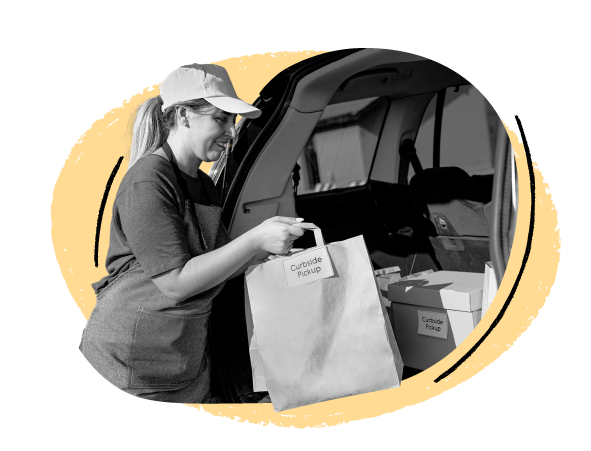
BOPIS is an acronym that stands for buy online, pick up in-store.
The acronym BOPIS is an abbreviation for “buy online, pick up in-store.”
A comprehensive Omni-Channel BOPIS strategy also known as “click and collect” often includes:
As well as the entire reverse logistics such as:
Shoppers don’t have to worry about shipping expenses, lengthy delivery timelines, or returning items that aren’t suitable or meet their standards with BOPIS.
The BOPIS model is being used by retailers all around the world to satisfy client demands. This popular retail method combines online purchasing and in-person collection to give customers the best of both worlds.
Online ordering and pick up in-store is an excellent way for you to drive in-store foot traffic while also bridging the gap between traditional brick-and-mortar and online shopping experiences.
BOPIS gained extreme popularity and growth during the COVID-19 pandemic as many shoppers chose this option due to social distancing regulations, contactless service, and speed of service; – to avoid slow shipping times, and backed-up supply chains issues, and slow return times.
As the economy opens up, BOPIS remains a very popular choice as customers prefer speed and convenience – two core values on which Amazon was built as well.
According to Insider Intelligence, Buy Online Pickup in Store, more than doubled in 2020, and it will continue growing to double digits until 2024, predicted to reach $140 billion.
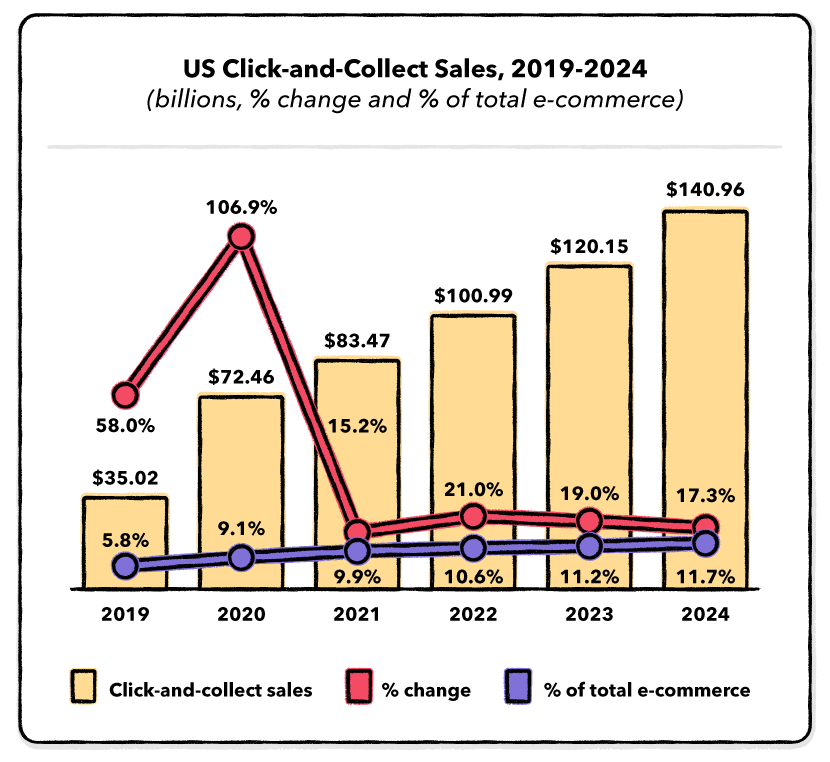
Understanding what BOPIS is, how it works, and the advantages for you and your customers will come in handy as you integrate buy online, pick-up in store into your omnichannel retail strategy.
In this BOPIS Ultimate Guide, we’ll look at everything you need to know about buy online, pick up in-store, curbside pickup BOPAC in retail as well as showcase a few examples of companies that are thriving at it.
As usual, the customer visits your online store, but instead of having only one option to ship home, they are presented with real-time inventory availability at the closest store or a store of their choice.
On major retailer websites such as REI, BestBuy, Target, or Home Depot, the customer can even shop the entire website based on In-Store availability.
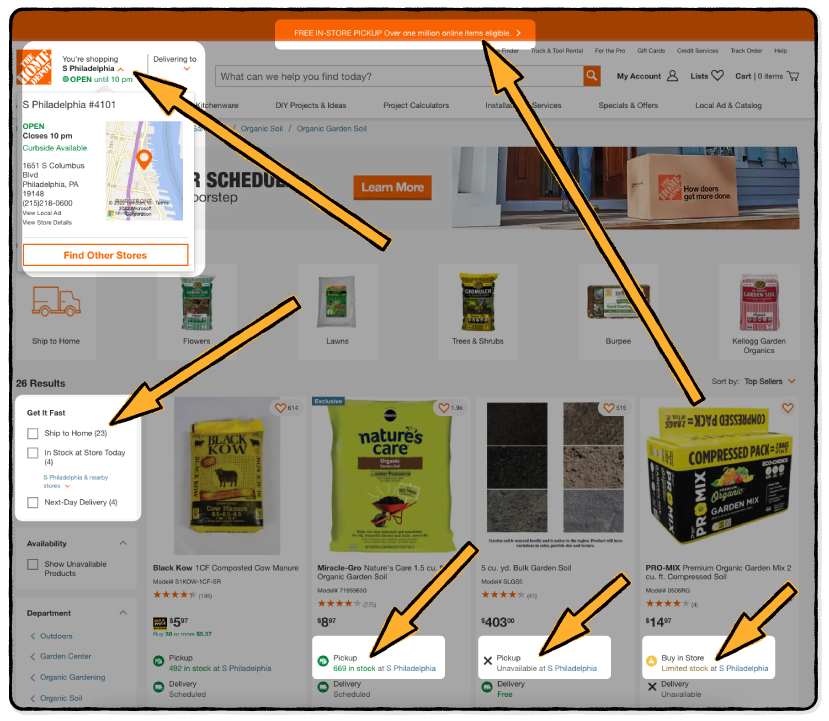
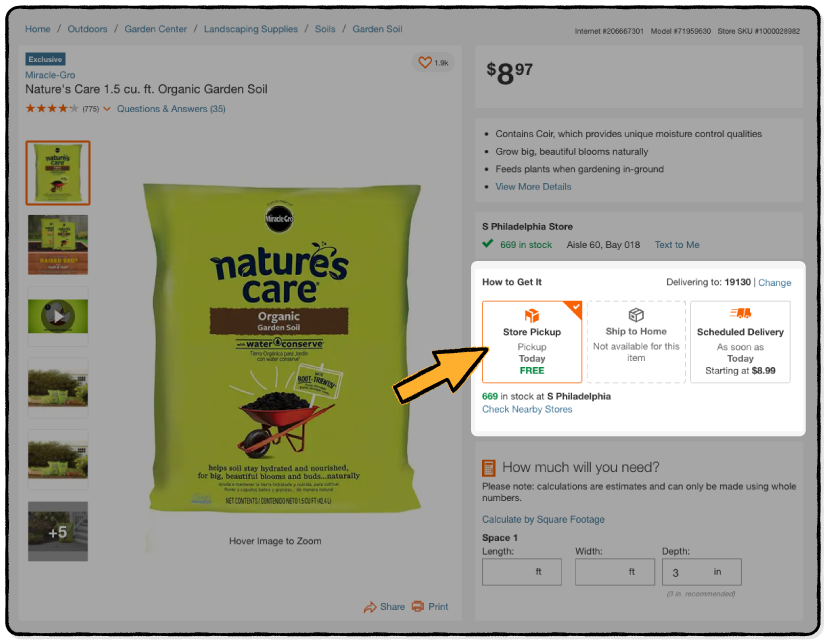
After the customer selects In-Store Pickup options at checkout some elements of customer experience are personalized to the pickup experience.
1) The Thank You Page has information about next steps
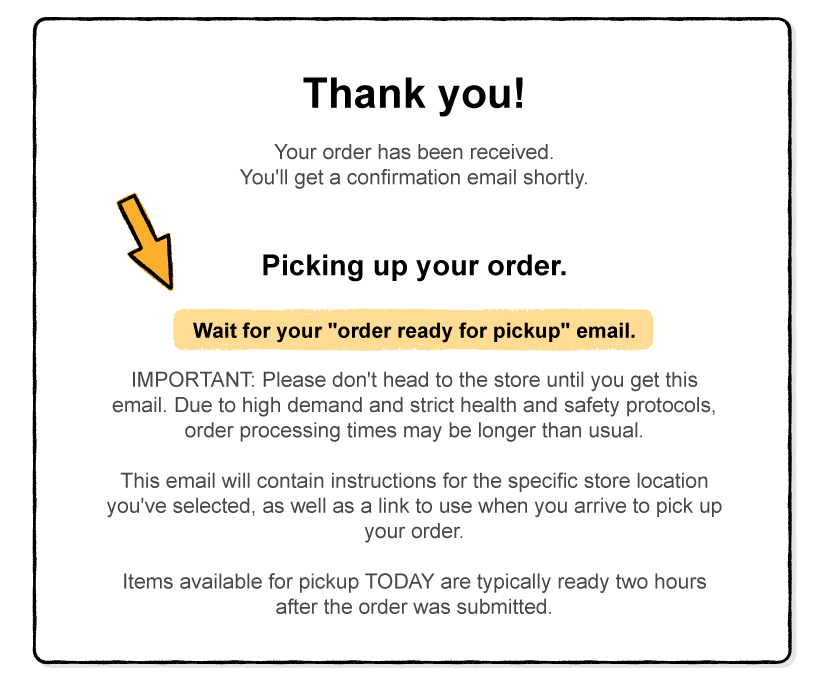
2) The Order Confirmation email is different from a regular online shopping email, it contains next steps info, store location etc.
Screenshot from our customer Evereve – See how WeSupply helped them implement In-Store Pickup at over 100 locations
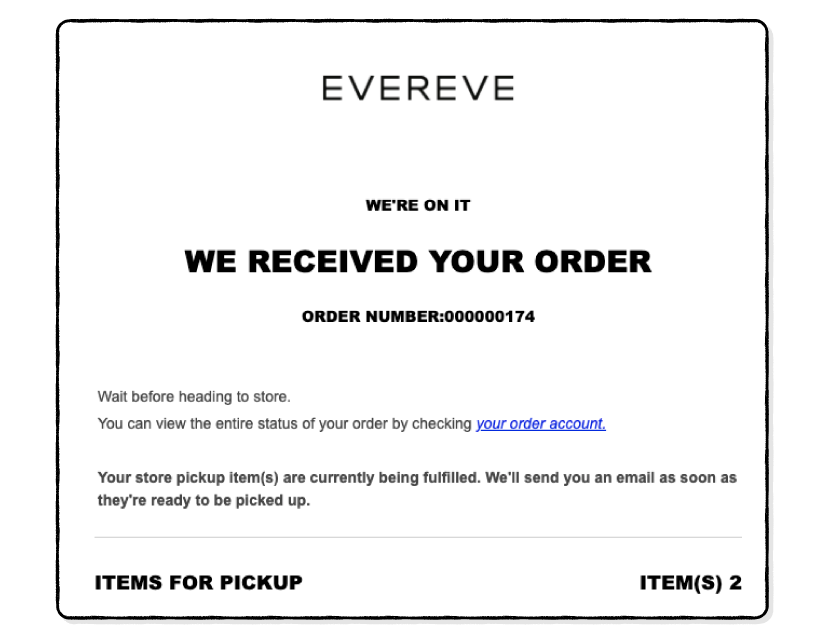
3) The Order View page is custom to the store pickup experience as well
Screenshot from our customer London Drugs – See how WeSupply helped them implement a full omni-channel strategy integrating directly with their ERP – Kibo Commerce.
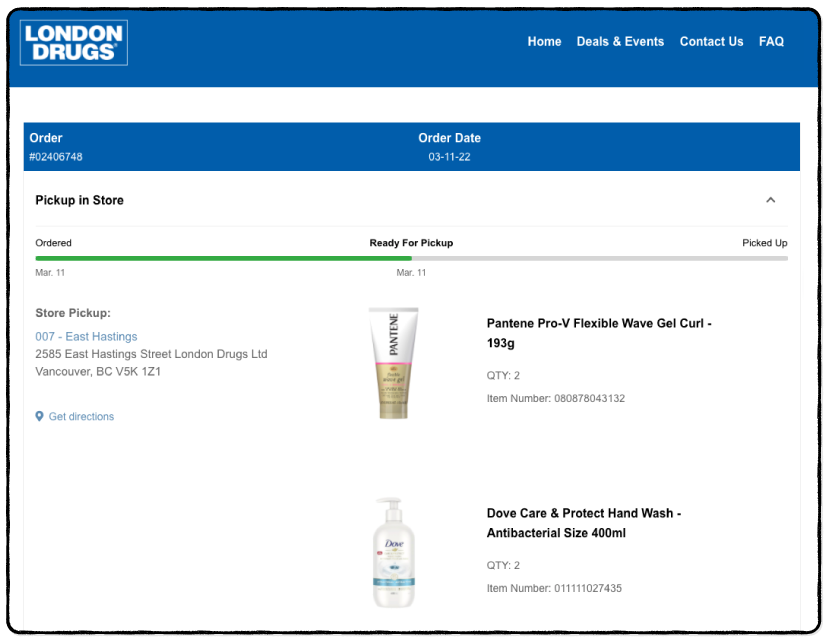
4) When the order is ready for pickup, the customer is notified and often a QR code or PIN is communicated with the customer for a faster and contactless pickup experience.
Screenshot from our customer Evereve – they use a simple 4 digit PIN number to speedup the In-Store Pickup experience.
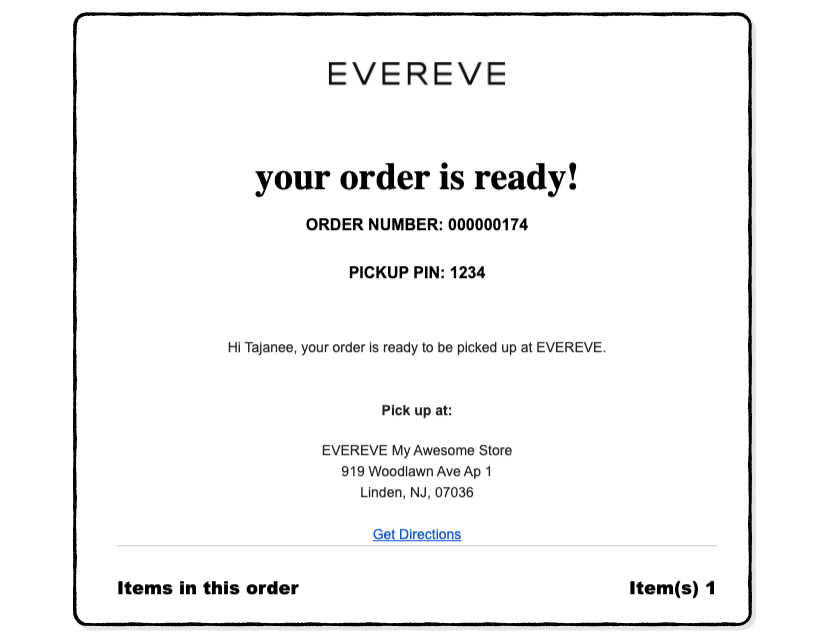
5) When the custom is ready to pickup the product it’s often presented with multiple options:
Watch this quick presentation video of the In-Store Pickup and Curbside experience that we put together.
Over the years, retailers have been working hard to merge the online and physical store experience. Around 2018 many analysts claimed that omnichannel is dead, how funny is that statement looking back today. 🙂
Over the years as retailers moved from legacy systems to more advanced order management solutions, new technologies enabled retailers to have a unified inventory management system where in-store inventory and warehouse inventory works together in fulfilling online orders from any physical store and vice versa in-store pickups are possible with “ship to store” capabilities. In fact, retailers now have a number of important benefits by leveraging buy online, pick up in–store.
In a study by International Council of Shopping centers the stats show the following:
It often happened to myself as well when ordering BOPIS, that on the way I remember that I actually need more products. At that point, as a customer, I walk into the store, make all my necessary purchases and at the end I pickup the item that was ordered online as well. In this scenario, I did not just walked into the store but also increased my average order value.
I find it even more beneficial when the products I order online require extra time to be pulled from the stockroom, saving me a lot of time as the product is ready to go by the time I get to the store.
When a product is shipped to the customer, the shipping experience is mostly handled by the carrier. It can be really good but at the same time, it can result in delays, lost or stolen packages, or even damaged products.
Because the customer is going to pick up the product in-store, the entire customer experience is managed by the retailer. The brick and mortar store can offer an outstanding, fast and effortless pickup experience.
For example, when I reviews the Nordstrom Pickup at Curbside Experience, Nordstrom knew exactly that if I pick up at curbside I have a car, and they included a little gift – a car freshener.
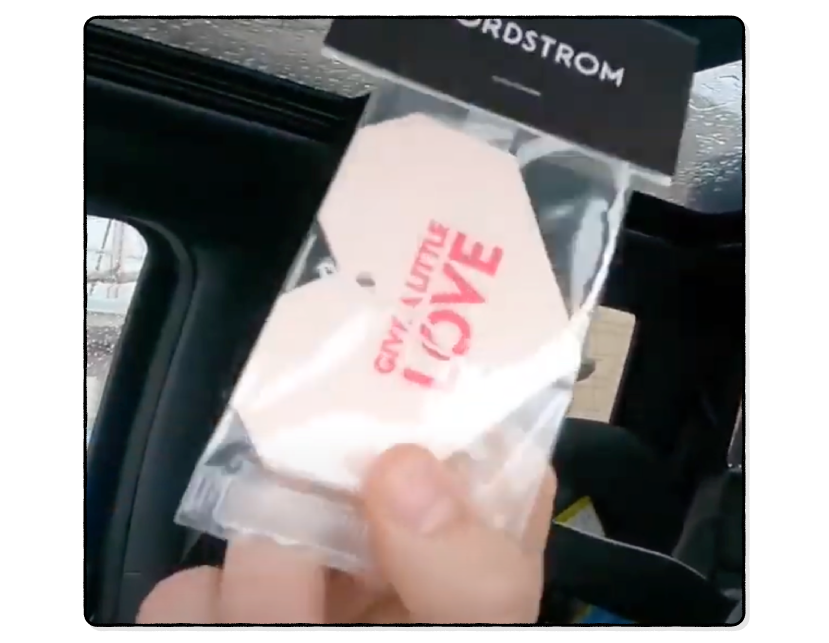
This is quite obvious right? 🙂
In-Store Pickup does not require the product to be shipped; therefore a significant amount is saved on shipping costs. Exception to this is “Ship to Store” but even on those situations often the inventory that is moved between stores is done either internally or in bulk at significantly reduced cost.
I would have to add here, that often the (BOPIS) in-store pickups do not require special packaging, boxes and the labour for packing is significantly reduced.
Speed is a significant part of the customer experience. In a world where instant gratification can build or break a business, 2 day delivery is the norm and 1 day delivery is what most retailers are aspiring for. Amazon is a pioneer at speed and sets the benchmark. Companies like GoPuff are running by the tagline “delivered in minutes” as little as 15-20minutes.
BOPIS – buy online pickup is store is a great alternative, the products can be ready for pickup within minutes, and offer great flexibility as the items can be picked up on the way home from work or during running errands.
The same applies for returns or exchanges. The customer can request a return or exchange online and on their way to work they can drive by curbside and the store associate can simply offer the exchange within minutes.
One of the fastest curbside experiences is offered by Target, however recently they further optimized the process by setting up a tent in the parking lot with a few shelfs where all the products ready for pickup are waiting for the customer. When you arrive at the store, they already have an associate waiting outside with your products, further reducing the time it takes to walk in and out from the store, almost like a drive-through experience… but faster 🙂
A few retailers have streamlined the BOPIS process even further by implementing Buy Online Pickup at Locker (BOPIL) solutions. This solution further minimizes pickup time for the customers and creates better processes at the store level.
The Process is quite simple:
This process allows the store associates to start picking and packing an order as one process, don’t need to find customers orders, or rush to search for the item when the customer is at curbside. This process streamlines the operations especially during busy seasons or when the retailer is short on staffing.
The most significant drawbacks are a result of poor implementation, mostly achieved by “hacking” the system to achieve BOPIS and BOPAC.
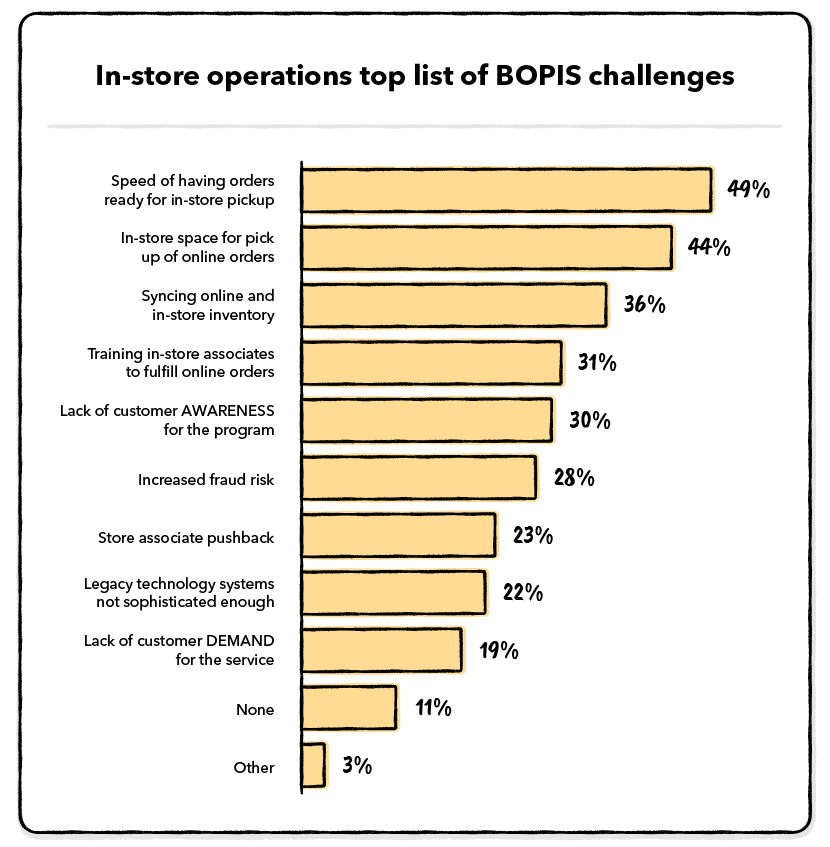
BOPIS challenges
In-Store Pickup can be a really frustrating experience when it’s not implemented well. One of the most common scenario is when BOPIS is done at the service desk which serves customers that are returning or exchanging their products. It can quickly result in a long line, long wait time, and a very slow and frustrating experience especially for the customers who are in a rush.
BOPAC challenges
One of the main reasons for implementing Curbside Pickup is for the customer convenience, however often it results in “calling the store” when the customer arrives, taking information over the phone, long wait times for the store associate to answer or even it can result in miscommunication.
Overwhelmed Associates
Associates are left hunting the bins to find the store order when there isn’t time to arrange the orders for pick-up. This occurs while the customer is on the phone, waiting. Associates must also gather personal, purchase, and location information during this conversation. After that, they’re forced to go looking for the customers car in the parking lot.
Long Wait Times
This experience is extremely overwhelming for the store associate, and the customer as the time to pickup at curbside instead of being below 2 minutes (industry benchmark) it can much longer.
The Lack of Curbside Pickup Location
If your store is in a downtown are, next to a busy street with no designated parking for Curbside it might be quite challenging, same applies to stores located in a Mall area… however since the pandemic some Malls are now offering dedicated curbside pickup parking where any store can deliver to.
Products are not picked up for days
One of the most common challenge with BOPIS is that the customer is not picking up their product, it sits on the shelf for days instead of being sold. Luckily the solution to this is simple, reminding the customer when their order is ready or even offering the option to cancel a store pickup can quickly solve this issue.

Today, most of these challenges are already solved by technology; at WeSupply we streamlined this process at over 500 major retail locations from the Fashion to Footwear and even at Daily essentials stores. In the past 12 months we handled over 1.2 million store pickups in US and Canada. Let me show you how we did it so you know what to look out for when considering implementing this strategy.
Centralized location
Your store associates needs a simple, centralized location where they can see all pickup orders, incoming returns and curbside pickups.
Easily manage all orders
Within this dashboard they can manage all orders, mark them as ready for pickup, unable to fulfill or even cancel an order is the inventory is not available.
When the store associate is clearly presented with “prioritized orders” based on timing the efficiency improves drastically. They know which order to fulfill next, which customer is waiting outside and for how long.
Access to all Customer Information
Within this dashboard the store associate has all order information as well as the customers. Knows exactly what car the customer has, color, make and made.
Recently we conducted an extensive research on some of the biggest retailers – view the full Customer Experience here – my personal favorites being in this particular order:
Least favorite being Walmart, Staples and Apple (who BTW doesn’t have curbside pickup at all)
What I learned is that there are two major approaches:
I personally prefer to select Curbside pickup vs In-Store later on in the experience because I might change my mind. For example if you select Curbside from the beginning but later on you realize that you need a few additional products, you need to wait outside in the car first to pickup the product and then go park and walk into the store to make the additional purchases.
Same applies if you get to the store but you are running late, don’t find parking and all you want at that point is to get your product and go.
One of the most critical steps in the “checkin process” is to capture the customers information, Car Make / Model / Color / Type, this will help your store associates easily identify the customer.
Checkout this short video below to see how WeSupply solved the store pickup and Curbside experience.
To complete the experience Buy Online Return In-Store / Buy In-Store Return Online is a must.
Buy In-Store Return Online – Is especially beneficial for customers that do not have your stores nearby, or when they are shopping while traveling. – As a personal experience I purchased some jeans on a trip from a retailer finding out too late that it doesn’t fit quite right… unfortunately I am now stuck with those jeans and cannot even ware them as the retailer does not offer Online Returns for In-Store Purchases.
Over the years many retailers have failed to implement a unified experience, mostly due to it’s complexity of integration of multiple systems, POS, WEB, ERP and OMS.
At WeSupply we took this problem as #1 to be solved and we managed to do it all with 1 single API, which is used for order import for the rest of our product offering.
Additionally we fully integrated the BOPIS experience into Magento, Shopify as well as Kibo Commerce.
In fact one customer was able to integrate their POS system with WeSupply in less then 2 weeks, bringing all POS orders available online, their customers can now view both online as well as in-store orders in one location, and have the same extended post-purchase experience regardless when and how they purchased the product. This simple integration also notifies the customer about Ship to Store orders as well as Buy In-Store Ship to Home scenarios.
Check out here the full WeSupply Buy Online Pickup In Store (BOPIS) & Curbside Pickup (BOPAC) solution
Done! Easy!
If the customer does not pickup the order within a few days, after a few reminders sent by WeSupply, the order can be canceled from the same interface within WeSupply, and we notify the customer automatically.
If the funds were pre-captured, WeSupply automatically creates a return and issues a credit memo for the customer.
Are you ready to get started with Buy Online Pickup in Store (BOPIS) and Curbside?
Book a quick call and we are happy to chat.
Want more details about curbside pickup in retail?
Download this guide to learn everything you need to know about BOPAC!

Handling returns and refunds manually in Shopify takes time— is this the best it can get? Fortunately, not! Keep reading to find out how to improve the return process for your Shopify store.

Want to grow your eCommerce Shopify store? We’ve compiled a list of 10 essential apps you need this year to successfully scale your business, so keep reading!

Step by step guide in engineering the perfect ecommerce return policy. Download the free return policy generator to get started!
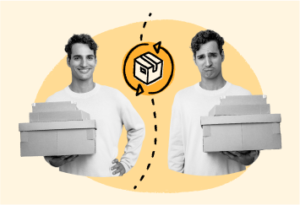
Our expectations can get the best of us, then reality strikes. See in this article what’s the truth behind your online returns expectations!

What is happening in the retail industry in terms of returns? Read this article to find out what are the latest retail returns trends in 2022!
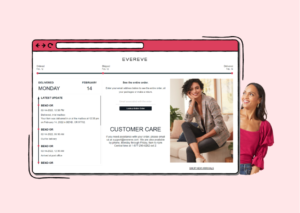
EVEREVE’s returns process took a 180-degree turn by using WeSupply’s Magento & Custom API integrations like Zendesk, Celerant, Veeqo
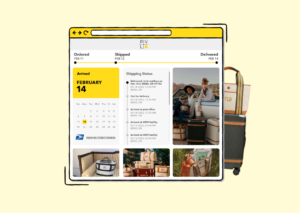
With WeSupply Paravel reduced time and complexity by integrating all systems into one, rather than hundreds of integrations with many platforms and carriers.
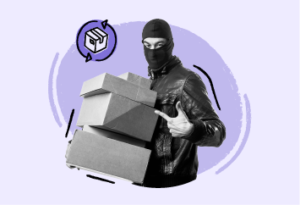
Learn more about return fraud signs to watch out for and best practices to help you avoid fraudulent returns altogether.
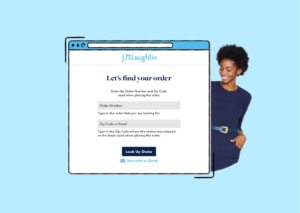
WeSupply was able to develop a native integration with Aptos, a huge omnichannel retail management software, that allows JML’s customers to track their packages and make returns in an automated and branded interface.